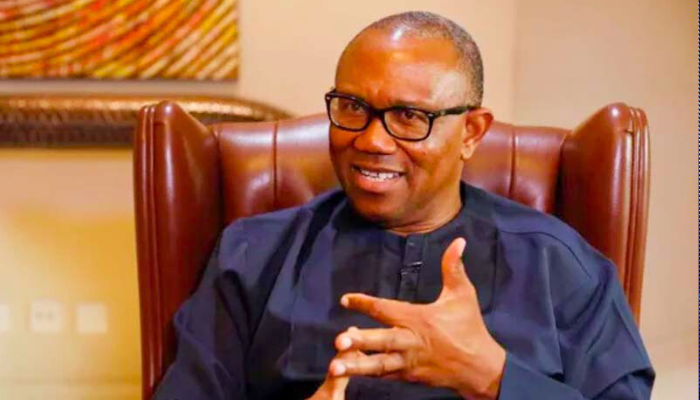By Alade Adisa
Peter Obi, a former governor of Anambra State, is one of the leading figures in the coalition hoping to unseat President Bola Tinubu in the upcoming 2027 general elections. The group has adopted the African Democratic Congress (ADC) as its platform.
However, questions are being raised about the long-term impact of Obi’s involvement in the coalition. Recall that in 2019, he was the vice presidential candidate to Atiku Abubakar on the platform of the Peoples Democratic Party (PDP). But his political relevance soared in 2023 when he contested the presidential election under the Labour Party (LP). He became the favourite of many young Nigerians, as well as some older citizens disillusioned with the PDP and the All Progressives Congress (APC).
Obi’s performance in 2023 election
With what became known as the Obidient Movement, Obi came third in the 2023 poll, winning in 11 states and the Federal Capital Territory (FCT), Abuja.
According to the results announced by the Independent National Electoral Commission (INEC), Bola Tinubu of the APC won the election with 8,794,726 votes and victories in 12 states. Atiku of the PDP followed with 6,984,520 votes and also won in 12 states. Obi scored 6,101,533 votes to place third.
Is Obi like Buhari of the ANPP and CPC era?
Before Muhammadu Buhari eventually won the 2015 presidential election through a coalition with Tinubu and others, he had contested three times — under the defunct All Nigeria Peoples Party (ANPP) and the Congress for Progressive Change (CPC) — largely relying on his popularity and political credibility.
In 2011, Buhari chose Lagos-based cleric Pastor Tunde Bakare as his running mate. Eventually, Goodluck Jonathan of the PDP won with 22,495,187 votes, winning 22 states and the FCT. Buhari came second with 12,214,853 votes and victories in 13 states, while current National Security Adviser, Nuhu Ribadu, came third.
When Tinubu and his allies were negotiating to bring Buhari into their new coalition in 2014, he repeatedly emphasized that Buhari’s consistent 12 million votes were already “in the bag” for the alliance to benefit from. Tinubu’s optimism was based on the loyalty of Buhari’s supporters, who had voted for him repeatedly, even without the backing of major political players. That belief proved true in 2015.
Can Obi now be compared to Buhari?
Speaking on the matter, political commentator Jonah Timpre highlighted reasons Obi could still play a significant role within the ADC: “Tinubu won the last election by a stroke of luck. If the opposition had united, there wouldn’t have been the vote-splitting we saw. The combined votes of Atiku and Obi were far more than Tinubu’s.
“Several factors now work against Tinubu’s government — both economic and political. On the economic front, the administration has virtually squeezed the life out of ordinary Nigerians through levies, taxes, and the removal of fuel subsidies. What’s most painful is that the funds collected are going to political officeholders. Monthly allocations to all tiers of government are huge, yet there’s little evidence of that money being used to improve people’s lives.
“In developed countries, such revenue gains are invested in healthcare, education, and social welfare. Here, nothing is done, and people are angry. More youths will be registered for the upcoming elections. While some may be discouraged by Obi’s 2023 loss, don’t forget that there have already been several youth-led protests against poor living conditions under Tinubu. So, assuming they’re tired and won’t vote may be wrong.
“Politically, the President’s handling of issues like the Rivers State crisis, his alleged interference in opposition parties, and his resistance to new political parties are troubling. This is a democracy; he shouldn’t act like he wants to be the only candidate in 2027. Such actions create more enemies than friends. Obi’s supporters may still back him — but only if he runs as the main candidate, not as a deputy.”
Dr. Ajani Adekunle’s perspective
Dr. Ajani Adekunle believes there is still a long way to go before the next election, and many developments could shape the political landscape: “Obi has said he’ll be on the ballot in 2027, but he didn’t specify the position. That’s wise. The coalition’s adoption of a platform is timely. Any internal issues regarding their use of ADC should be resolved well before the polls.
“The Obi factor may be overrated — but it must not be underestimated. Even within the APC, some individuals may defect. If Wike, allegedly working for Tinubu to destabilise the PDP, had acted more discreetly, things might be different.
“Public sympathy for the PDP as the opposition party is limited because of their past governance failures. That same sympathy helped Obi in 2023, as many believed he represented a fresh start. That sentiment may still linger.
“The real problem I foresee in the ADC is whether Atiku will agree not to be its candidate, and whether Nasir El-Rufai will step aside for Obi. Obi’s recent comment that he wouldn’t mind serving only one term could be a double-edged sword. While that may appeal to the North, it could be a liability in the Southeast, where people might question why their turn comes with conditions.
“Still, Obi remains one of the coalition’s strongest prospects,” he concluded.



